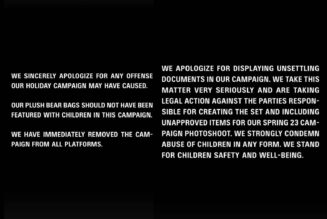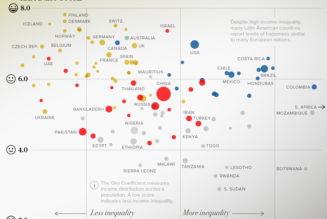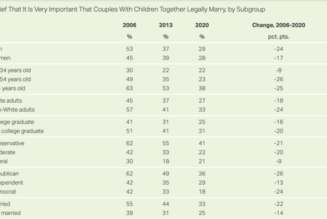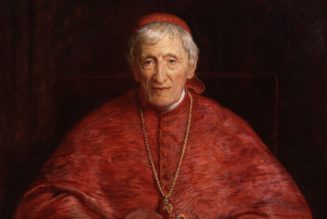
Yesterday, I experienced something of a “Saint Joseph Synergy,” finding a copy of Fr. Donald H. Calloway’s Consecration to St. Joseph in my mailbox, and on the very same day that we read at Mass:
This is how the birth of Jesus Christ came about.
When his mother Mary was betrothed to Joseph,
but before they lived together,
she was found with child through the Holy Spirit.
Joseph her husband, since he was a righteous man,
yet unwilling to expose her to shame,
decided to divorce her quietly. (Matt 1:18-19)
Having the book in my hand on the same day in which Joseph is featured in our readings felt a bit like one of those moments when the Holy Spirit is giving me a pronounced slap upside the head, saying “pay attention.” For that reason (and a few others) I am asking St. Joseph to be my patron for 2020, and to teach me what he knows. Bold of me, perhaps, but in general I think “teach me what you know” is precisely what we should ask of the saints and, in my experience, if you ask for the lessons, they’ll supply them to you by the handful. Given all of my failures in 2019, it seems wise for me to go to a master teacher for some one-on-one tutelage on how to live and work and love with steadiness and a truly grounded faith. That would mean going to Joseph.
We know the rest of the story begun in yesterday’s reading. Joseph does not put Mary aside. An angel comes to him in a dream. Not a great Archangel as greeted Mary, but a rather workaday heavenly messenger tasked with reassuring a rather ordinary workman of his time. Going on faith, he brings Mary into his home, and prepares to parent and protect Emmanu-el, “God-with-us,” and to quietly contribute to what Christ Jesus, the Man-God, would become, and even how he would conduct his earthly ministry:
There is a rabbi on the cross, and he looks like a king, but he was a tekton (i.e., artisan, builder, technician) like his stepfather, the righteous man who likely drilled him in the law even as he taught him how to take the measure of whatever construction material was before him and determine its best usage—to envision, design, attach, refine, and finish.
Perhaps parables of mercy were launched in the imagination of the rabbi when he was still very young, when the master taught him his craft, urging the apprentice to discover metaphors before his eyes: how the difficult process of planing something down—of making straight what is gnarled and knotted—brings out its inner beauty, even as it exposes its tiniest deformities to the scrutiny of the world.
An adolescent with the wisdom and confidence to debate the temple elders might have nodded in agreement, while countering that those minute flaws only served to better emphasize all that was intrinsically lovely within the wood—what made it worth saving and finishing, rather than tossing into the fires.
People like to say, “We don’t know anything about Joseph.” Well, we know what matters:
- Joseph was righteous; he lived devoutly and in accordance with God’s word.
- Joseph was faithful; he was a man willing to work within the mysteries of God as they came at him.
- Joseph was courageous; it is no small thing to go outside of the customs of a village or a tribe.
- Joseph was generous; the needs of Mary and the Child came before all else, including his established life and industry.
- Joseph was wise; he understood that God’s mind and ways are not our own, but always trustworthy.
We know one other thing about Joseph, and with the world as it is, it might be the most important thing to think about: he was kind.
Joseph’s kindness may outweigh all his other good qualities, even his righteousness. Righteousness can sometimes become a boat stuck on the shoals of justice and thereby rendered immovable. Kindness, which contains an element of mercy, can lift the vessel to freedom.
Joseph’s kindness is an example of true strength. He could have, in all “righteousness,” cast Mary aside in a way that publicly shamed her and would have ended her life. Within the Law, within the society and the tribe, he had that power and to use it would have meant no dishonor to him.
But even before the reassurances that came from heaven, Joseph was too kind to use his socially approved power in that way. Having seen qualities in Mary that made him see her as unique and lovable, her value was not so lessened in his eyes as to diminish her human status into mere, disposable thing-hood. He would not expose her to that element of humanity that, even today, has a lust for the lives and the blood of the vulnerable—for vengeful, often spiteful, interests that serve something other than heaven.
- Joseph was righteous;
- The righteous life he embraced developed his faithfulness;
- Faithfulness gave him courage;
- Courage permitted his generosity;
- Generosity let him grow in wisdom;
- Wisdom taught Joseph kindness.
Kindness is where, if we must err at all, all our errors should occur.
Joseph made no errors because he was a man of faith, and a man in full.
Oh that in 2020 the whole world would appreciatively make a model of this righteous, faithful, courageous, generous, and kind Jewish man. Indeed, with such an undertaking, 2021 might look very different.








